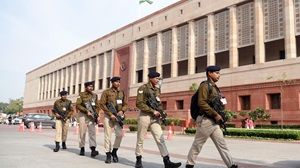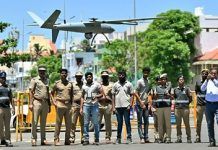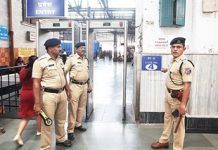The Central Public Works Department (CPWD) had floated a tender for additional security infrastructure for the Parliament complex, including security gadgets and bulletproof enclosures, on December 12, a day before the security breach in the Lok Sabha took place. The CPWD comes under the ambit of the Union Housing and Urban Affairs Ministry.
Two men jumped from the public gallery into the Lok Sabha chamber during Zero Hour on December 13, carrying what appeared to be gas canisters, which they spewed around the room before they were overpowered by MPs and handed over to security staff. Two others sprayed coloured smoke and shouted slogans just outside the Parliament’s premises. All four have been arrested under the Unlawful Activities (Prevention) Act, an anti-terror law.
The CPWD tender document — titled, “Redevelopment of reception lounge & other security infrastructure in Parliament Complex, New Delhi” — had an estimated cost of ₹35 crore and was published on December 12.
The department invited pre-qualification bids for the project, setting December 22 as the deadline for submission. Bids will be opened on the same day. The tender document states that financial bids will be invited from pre-qualified bidders at a later date.
In view of the high degree of security concerns at the site and the kind of work involved, stringent access-control measures will be exercised for the entry and exit of manpower, material, and construction equipment during project implementation, the tender document said.
The bidder is advised to visit the site of work, at his own cost, and examine it and its surroundings himself to collect all information that he considers necessary for proper assessment of the prospective assignment,” the document said. “Reception lounge & other security infrastructure along with E&M [electrical and mechanical] services required to be executed, work also includes security gadgets, Bullet Proof Morchas etc. The contractor shall plan resources accordingly,” it added.
The chosen contractor must execute the work in three shifts with a large manpower of skilled, semi-skilled and unskilled workers, experienced supervisors, and professional engineers, it said.








